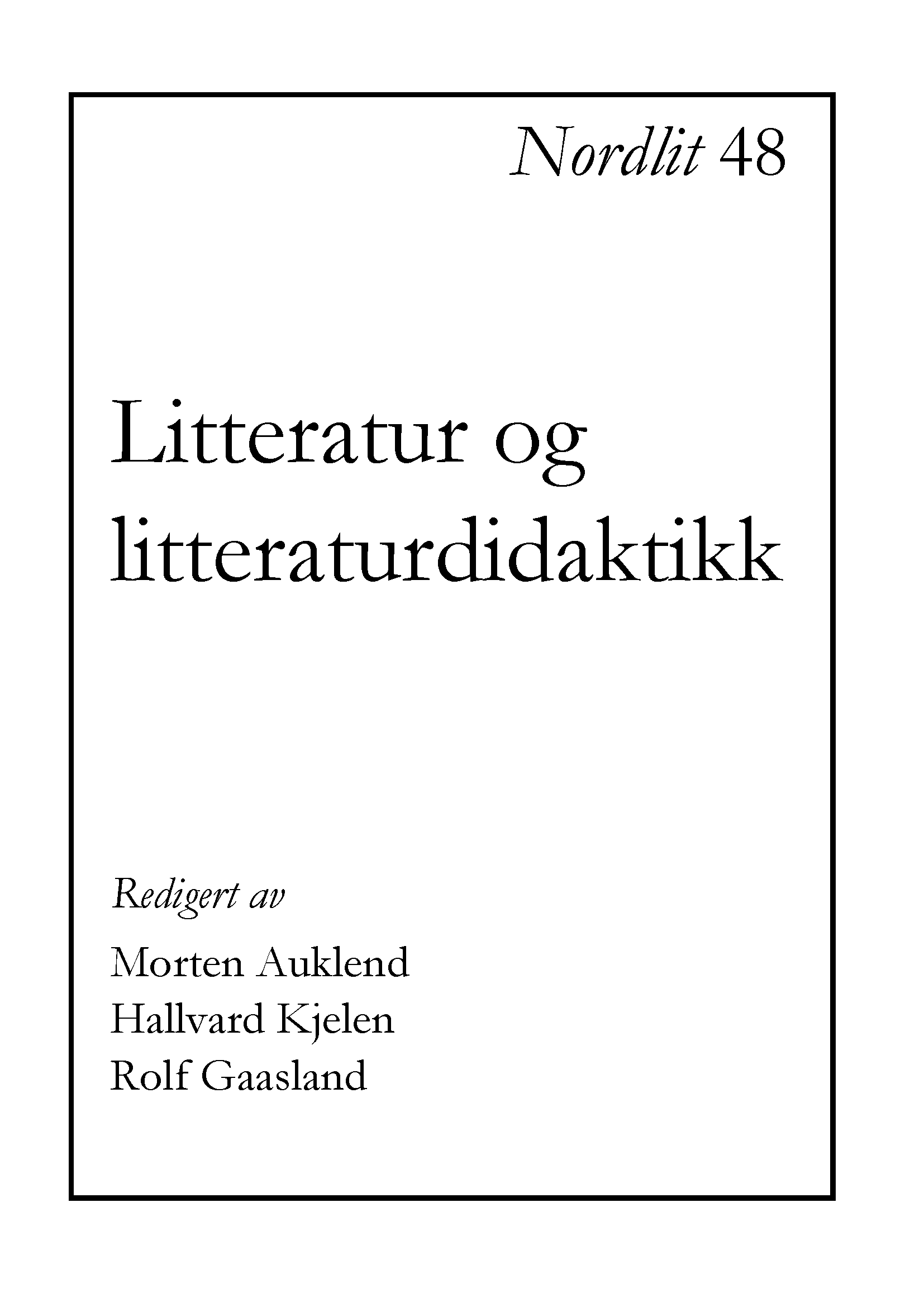Den umulige kommunikasjonen i Lene Asks "Det du ikke sier, er sant"
DOI:
https://doi.org/10.7557/13.6338Keywords:
children's literature, communication, challenging YA novels, exploratory literature teaching, young adult fictionAbstract
The protagonist of Lene Ask’s novel Det du ikke sier, er sant (What you don’t say is true (2017)) is Kamran, a young teenager who resorts to lies when he is unsure of what to say. The main theme of the novel concerns the development of Kamran’s language use and his growth into an autonomous subject in the communication with others. The book’s protagonist, theme and treatment of the theme may appeal to young readers. The novel portrays language, truth, and lying in a way that invites the reader to critically examine their own perceptions of these, especially through the novel’s explicit intertextuality with Henrik Ibsen’s Peer Gynt. The novel may to a certain degree be categorized as a so-called complex or challenging text. The article argues for the novel’s potential in exploratory literature teaching. The author explores the possible meanings of the title to indicate three different ways one might approach the literary presentation of Kamran’s mastering of communication and language.
References
Allan, Cherie. 2018. «Postmodern Picturebooks». I The Routledge Companion to Picturebooks, redigert av Bettina Kümmerling-Meibauer, 201–208. London & New York: Routledge. https://doi.org/10.4324/9781315722986-21
Amalie. 2017. «Anmeldelse av Det du ikke sier, er sant.» Uprisen. https://uprisen.no/tekst/det-du-ikke-sier-er-sant/
Ask, Lene. 2017. Det du ikke sier, er sant. Oslo: Gyldendal.
Birkeland, Tone, Gunvor Risa og Karin Beate Vold. 2018. Norsk barnelitteraturhisto-rie, 3. utg. Oslo: Samlaget.
Bland, Janice. 2013. Children’s Literature and Learner Empowerment: Children and Teenagers in English Language Education. London: Bloomsbury Academic.
Daugaard, Line Møller og Martin Blok Johansen. 2011. «‘Der skal være detaljer, vi ikke forstår’ – tosprogede og børnelitteratur.» Børn & bøger 1. https://www.ucviden.dk/ws/portalfiles/portal/107150327/Der_skal_v_re_detaljer_vi_ikke_forst_r.pdf
Derrida, Jacques. 2000. «Lyotard and us.» Parallax 6 (4): 28–48. https://doi.org/10.1080/13534640050212617
Derrida, Jacques. 2002. «The Animal That Therefore I Am (More to Follow).» Critical Inquiry 28 (2): 369–418. https://doi.org/10.1086/449046
Gabrielsen, Ida L, Marte Blikstad-Balas og Michael Tengberg. 2019. «The role of literature in the classroom. How and for what purposes do teachers in lower secondary school use literary texts?» L1-Educational Studies in Language and Literature 19: 1–32. https://doi.org/10.17239/L1ESLL-2019.19.01.13
Ibsen, Henrik. 1876. Peer Gynt. I Henrik Ibsens skrifter. https://www.ibsen.uio.no/DRVIT_PG%7CPGht.pdf
Johansen, Martin Blok. 2015. «‘Jeg har forstået den sådan, at den ikke skal forstås’ – når 6.A. læser Franz Kafka.» Acta Didactica 9 (1). https://doi.org/10.5617/adno.1391
Kümmerling-Meibauer, Bettina. 2018. «Lying and the Arts». I The Oxford Handbook of Lying, redigert av Jörg Meierbauer, 554–564. Oxford: Oxford University Press. https://doi.org/10.1093/oxfordhb/9780198736578.013.44
Ommundsen, Åse Marie, Gunnar Haaland og Bettina Kümmerling-Meibauer. 2021. Exploring Challenging Picturebooks in Education: International Perspectives on Language and Literature Learning. London: Routledge.
Ommundsen, Åse Marie. 2017. «Utfordrende bildebøker i klasserommet». I Danne og utdanne: litteratur, språk og samtale, redigert av Nina Gram Garmann og Åse Marie Ommundsen, 119–140. Oslo: Novus.
Ringrose, Christopher. 2006. «Lying in Children’s Fiction: Morality and the Imagination.» Children's literature in education 37 (3): 229–236. https://doi.org/10.1007/s10583-006-9010-8
Schrijvers, Marloes, Tanja Janssen, Olivia Fialho, Rijlaarsdam Gert. 2018. «Gaining Insight Into Human Nature: A Review of Literature Classroom Intervention Studies.» Review of Educational Research 89 (1): 3-45. https://doi.org/10.3102/0034654318812914
Sønneland, Margrethe og Atle Skaftun. 2017. «Teksten som problem i 8A. Affinitet og tiltrekningskraft i samtaler om ‘Brønnen’.» Acta Didactica Norge 11 (2). https://doi.org/10.5617/adno.4725
Udir. 2019. «Hva er nytt i norsk?» Oppdatert 18.11.2019. https://www.udir.no/laring-og-trivsel/lareplanverket/fagspesifikk-stotte/nytt-i-fagene/hva-er-nytt-i-norsk/
Udir. 2020. «Læreplan i norsk.». Oppdatert 04.10.2021. https://www.udir.no/lk20/nor01-06
Waage, Lars Rune. 2018. «Multimodale og subjektive uttrykk i Helga Sætres Fallteknikk og Lene Asks Neste gang blir alt riktig». I Multimodalitet i skole- og fritidstekstar, redigert av Magne Rogne og Lars Rune Waage, 229–246. Bergen: Fagbokforlaget.
Downloads
Published
How to Cite
Issue
Section
License
Copyright (c) 2021 Sofija Christensen

This work is licensed under a Creative Commons Attribution 4.0 International License.









